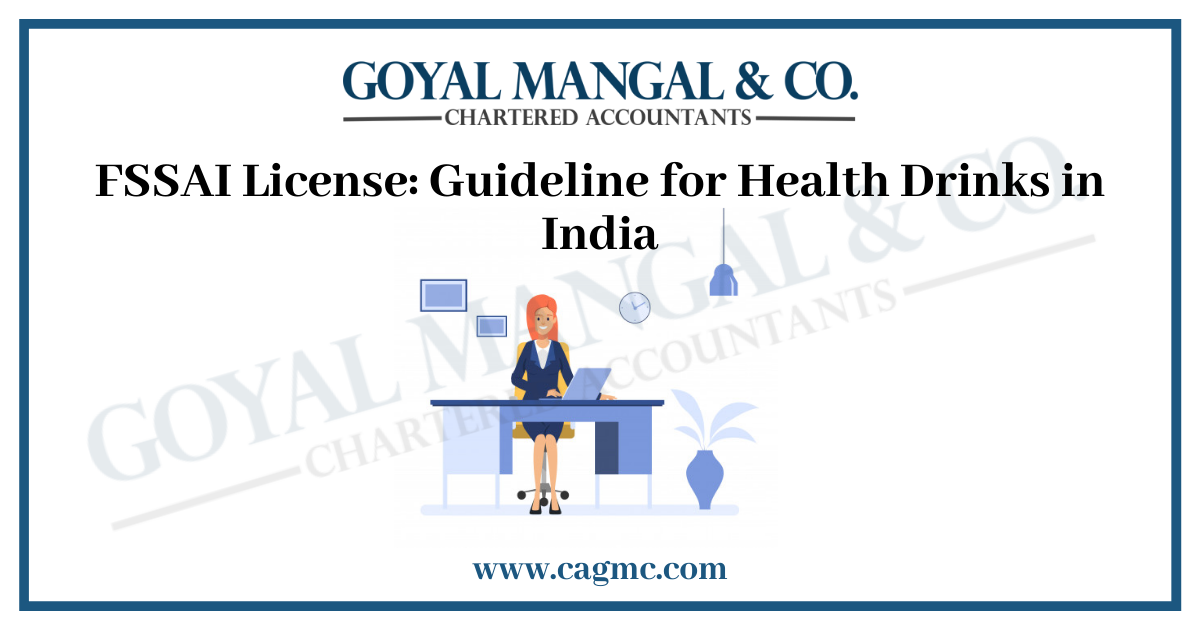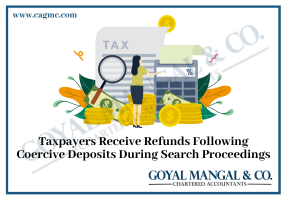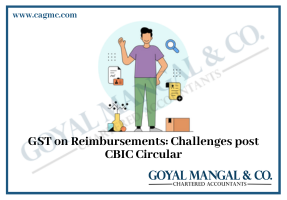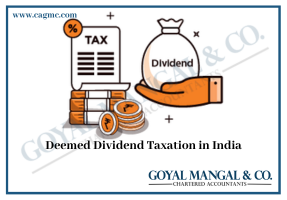
Health and fitness awareness has risen dramatically in India and practically everywhere else in the world. In India, the health-drinks industry has exploded in recent years. For nutritional reasons, a considerable portion of the population has increased their consumption of numerous health drinks. FSSAI, on the other hand, ensures that these food and drink items are of high quality and do not pose a health risk. In this blog, we will discuss the FSSAI’s different regulations, Guideline for Health and Drinks in India.
What is the Food Safety and Standards Authority of India (FSSAI)?
The Food Safety and Standards Authority of India (FSSAI) is a statutory organization under the Indian government’s Ministry of Health and Family Welfare. The Food Safety and Standards Act of 2006, which is a consolidating act related to food safety and regulation in India, formed the FSSAI. The FSSAI is in charge of preserving and promoting public health by regulating and supervising food safety.
It formulates numerous standards and controls methods to ensure food quality levels. FSSAI also employs a number of measures to aid in the removal of dangerous and poisonous substances. Consumers gain assurance about food safety as a result of the application of these steps.
Importance of FSSAI in India
It formulates numerous standards and controls methods to ensure and maintain food quality levels. FSSAI also employs a number of measures to aid in the removal of dangerous and poisonous substances. As a result, Consumers gain assurance about food safety.
The Ministry of Health and Family Welfare has administrative jurisdiction over the FSSAI. The FSSAI’s major goals are as follows;

Guidelines before applying for License under FSSAI
You must complete the pre-requisite checklist shown below before applying for a Food License for Health Drinks – FSSAI licenses are always deemed to be under the supervision of the respective state government, and if you apply for one, you may be needed to provide additional information, as indicated below.
- For the identification of hazards and their successful eradication, a hazard analysis test must perform.
- For the goal of maintaining food production standards and establishing verification methods to check that corrective actions have implemented, certain procedures must follow.
- Every milestone and controlling point can have critical limitations set.
- Employees must receive extensive training so that they understand their responsibilities and adhere to the same standards when handling food products.
- The distributors must ensure that the food goods are of good quality.
- It is critical to devote time for promotion and awareness, advertising, marketing, and other similar tasks, as these aids helps in attracting clients.
Obtaining FSSAI Licenses
The defined safety requirements must follow by all corporate organizations involved in India’s health drinks industry. When establishing a health drinks business in India, it’s critical to follow FSSAI requirements and obtain an FSSAI Food license. The following types of FSSAI licenses are necessary:
Registration under FSSAI
FSSAI registration is necessary for any health drinks firm with annual revenue of less than Rs. 12 lakhs.
State License
An FBO’s annual turnover must be between Rs. 12 lakhs and Rs. 20 crores in order to receive an FSSAI state license.
Central License
A food business can only apply for an FSSAI Central license if its annual turnover exceeds Rs. 20 crores.
Major Recent Changes made by FSSAI
- A “carbonated beverage containing fruit juice” is defined as a beverage that contains less than 10% but more than 5% fruit juice (2.5 percent in the case of lemon or lime). The applicability of the Total Soluble Solids or TSS of 10% will not charge.
- The quantity of fruit juice must declare on the labels of carbonated fruit drinks or beverages.
Standard Prerequisites for obtaining an FSSAI licence
Food Business Operators must be aware that the safety standards for food and beverages vary from one item to the next. The execution of these significant and crucial procedures for that specific food item is the main purpose of these safety standards. Adulteration, fraud, or any other malpractices to cheat and play with the health of consumers were all prohibited by the FSSAI. The standards for FSSAI license are listed below:
- Fruit content (m/m)
- Total Soluble Solids (m/m). A minimum of 10% is necessary.
- Not less than 5.0 percent lemon or lime juice
- Not less than 10.0 percent of other fruits
Standards set by FSSAI for Health-Drink Industries
The FSSAI has set the following requirements for health drinks:
- Customers should be aware of what they are drinking if the manufacturer includes a safety warning on the drink’s label.
- The usage restriction should also be written on the label.
- Furthermore, the label should state whether the drink is unsafe for pregnant women or children.
Penal Offenses under FSSAI
- Failure to obtain an FSSAI license carries a six-month sentence as well as a fine of up to Rs. 5 lakhs.
- Food that is not fit for human consumption carries a penalty of up to 5 lakhs rupees.
- In the event of death, a penalty of not less than Rs 5 lakhs will impose.
- In the case of any serious injury penalty of up to 3 lakhs is applicable.
- Food quality concerns or if the food sold does not meet the specified quality standard, a penalty of up to Rs 5 lakhs may be imposed.
Conclusion
Because consumers are always looking for better and healthier options, we can thus infer that obtaining an FSSAI license is critical for food and beverage manufacturers. To apply for this license, food business owners must go to the FSSAI website, fill out an application for the license/registration, and keep track of the FSSAI application status.







